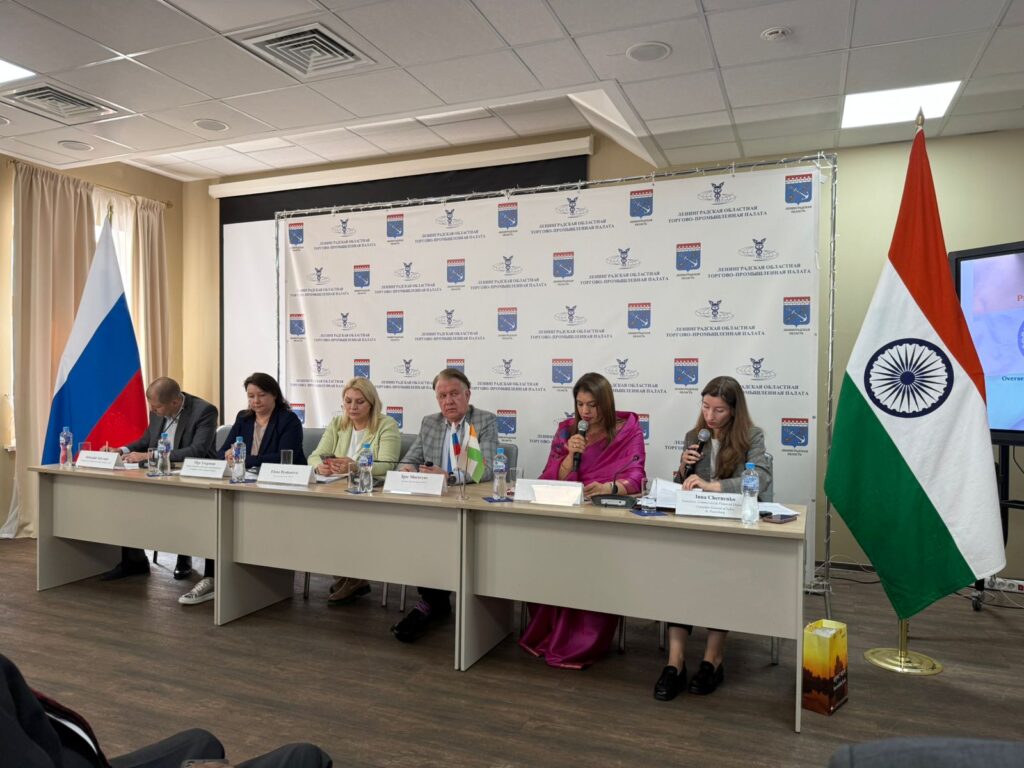In today’s rapidly shifting job market, the idea of finding a well-paying, stable, and satisfying job abroad has transformed from a dream into a realistic and achievable goal for many. With increasing globalization and a growing demand for skilled labor in foreign countries, opportunities are opening up like never before. The mantra is clear: if you want to build a better life and expand your horizons, choosing the right lucrative job abroad now can be your ticket to a brighter future.
The blessing of an overseas job lies not just in higher income but also in exposure to global practices, cutting-edge technology, and diverse cultures. Moreover, countries like Russia are actively looking to fill massive labor shortages, making it the perfect time to step up and grab those high-paying roles. Let’s explore why this is the golden era for job seekers to take their skills across borders.
The Booming Demand for Foreign Workers in 2025 and Beyond
Why Working Abroad is More Attractive Than Ever
There has never been a more exciting time to pursue a job outside your home country. The post-pandemic world has seen nations scrambling to revive economies, rebuild infrastructures, and inject energy into healthcare, technology, and service sectors. This means massive employment opportunities for foreign workers—especially those from labor-rich nations like India.

What makes working abroad especially attractive today is not just the salary but the benefits that come with it. Many jobs abroad offer free accommodation, healthcare, paid leave, and travel perks. Moreover, the diversity of work environments helps individuals grow professionally and personally, building an international portfolio that is respected worldwide.
A job abroad can also offer a better work-life balance, access to modern amenities, and a higher standard of living. If you have skills, there’s no reason to wait. The time to act is now.
Global Labor Shortages Driving Opportunities
Countries across the globe, from Europe to the Middle East and Asia, are experiencing a shortage of skilled and semi-skilled workers. An aging population, a shrinking local labor force, and increased industrialization are the main reasons. This gap has made nations revise immigration policies and actively seek foreign talent.
Sectors like construction, logistics, manufacturing, hospitality, healthcare, and IT are under pressure to fill positions, opening doors for international workers. These aren’t just low-end jobs—there’s a huge demand for skilled professionals, including nurses, technicians, welders, engineers, and drivers.
Eye on 2030: Russia’s Demand for 3.5 Million Workers
According to recent reports, Russia will require around 3.5 million workers by 2030 to meet its developmental goals. This projection is not just a number—it’s a signal. Russia is undergoing rapid economic transformation, with significant investments in infrastructure, energy, and technology.



The shortage includes both skilled professionals and laborers. As Russia’s population ages and its economy expands, there is an urgent need to bring in foreign talent. India, with its abundant workforce and diplomatic ties with Russia, stands to benefit immensely from this opportunity. The groundwork is being laid now for mass recruitment in the coming years, and those who start preparing today will be the first to reap the rewards.
Why Russia is Emerging as a Top Job Destination
Strategic Geo-Political and Economic Partnerships
Russia’s strategic ties with countries like India and its focus on diversifying labor sources make it a hot spot for job seekers. The recent strengthening of diplomatic relations has included discussions on manpower exchange, skill development, and mutual recognition of qualifications. This means smoother processes, fewer bureaucratic hurdles, and a friendlier environment for Indian workers.
Russia offers relatively easier entry barriers compared to many Western nations. With streamlined visa procedures, mutual cooperation, and a growing demand for workforce across sectors, Russia is quickly climbing the ladder as a preferred destination.

Labor Gap and Industrial Growth in Russia
One of the biggest factors propelling Russia into the spotlight is its growing labor gap. Massive government-funded projects in urban development, transportation, oil & gas, and defense have created a surge in labor demand. However, the local population growth has not kept pace, and there are not enough young people to fill these roles.
This shortage has opened the floodgates for recruitment agencies and government delegations to explore talent from countries like India. If you’ve got a trade skill, basic education, or even specialized technical training, the chances of finding a lucrative job in Russia are higher now than ever before.
Promising Sectors for Skilled and Unskilled Labor
Here’s a breakdown of the most promising sectors in Russia:
- Construction & Engineering: Massive road, rail, and housing projects are underway.
- Healthcare: With aging demographics, there’s a shortage of nurses, lab techs, and caregivers.
- Manufacturing: Skilled machine operators, electricians, and assembly line workers are in demand.
- Hospitality & Services: The growth in tourism has fueled a need for chefs, hotel staff, and cleaners.
- IT & Telecom: Cybersecurity, data analysts, and software developers have a growing market.
Whether you’re a fresher or experienced, there’s a seat at the table if you’re willing to upskill and adapt.
India-Russia Manpower Collaboration: A Win-Win Scenario
The Role of External Affairs Ministry in Global Employment
India’s Ministry of External Affairs has started taking aggressive steps to promote overseas employment. With initiatives focused on protecting worker rights, improving skill certifications, and partnering with other countries, Indian workers are now receiving better support than ever.
They’re also facilitating dialogues with host countries to ensure safety, fair pay, and legal contracts for all outbound workers. This is a game-changer, especially for those worried about job fraud or unsafe conditions.
Recent Delegations to Russia by Indian Recruiting Agencies
Recently, Indian recruiting agencies, along with representatives from the Ministry, visited Russia to explore employment avenues. These discussions focused on the types of skills in demand, expected wages, housing arrangements, and labor laws.
These steps have ensured that potential migrants will not walk into the unknown. With verified employers and government-backed contracts, the risk of exploitation reduces drastically. The delegations are also identifying high-potential zones within Russia where the demand is highest—making it easier for job seekers to target their applications.
Expanding Avenues for Indian Workers in Russian Markets
As this collaboration deepens, India’s workforce will have better access to verified job listings, safer relocation support, and quicker processing of documents. Efforts are underway to create a centralized employment portal for job seekers where they can access verified opportunities in Russia and other nations.
This isn’t just about sending workers abroad—it’s about empowering Indian talent to thrive on a global stage while contributing to the growth of both nations.
How to Identify the Right Lucrative Job Abroad
Researching Countries With Worker Shortages
Before packing your bags, the first step is research. Identify countries actively looking for foreign labor. Look into their economic health, job markets, safety, cost of living, and immigration policies. Russia, as discussed, is high on this list, but so are countries in the Middle East, Eastern Europe, and Southeast Asia.
Focus on countries that offer legal protections to workers and have bilateral agreements with India. This increases the chances of a hassle-free experience.
Matching Skills with Global Demand
Your goal should be to match what you know with what the world needs. If you’re in healthcare, look for nursing or caregiver roles. Skilled in welding? Check construction jobs. IT professional? Go for data science and cybersecurity roles.
Update your resume to highlight international standards and achievements. Certifications in English, digital tools, or industry-specific software can give you a significant edge.
Avoiding Scams and Fraudulent Agencies
Unfortunately, where there’s opportunity, there’s exploitation. Many job seekers fall into traps of fake agents and unverified promises. Always check if the recruiter is registered with your government. Use official job portals and don’t pay upfront without legal documentation.
Stick to verified listings, consult government job boards, and reach out to embassy support if needed. Better safe than sorry.
Key Sectors in Russia Offering Lucrative Jobs
Construction and Infrastructure Projects
Russia’s construction and infrastructure development sectors are booming—and they are crying out for manpower. With ambitious government plans to modernize cities, upgrade transportation networks, and expand industrial zones, there’s a high demand for workers in both skilled and unskilled categories. Roles such as welders, electricians, plumbers, crane operators, and civil engineers are in particularly high demand.
The salary packages are attractive, and often include accommodation, medical insurance, food allowances, and transportation. What’s even more appealing is the job security—many infrastructure projects are long-term, which means sustained employment for several years.
Russia’s major cities like Moscow, St. Petersburg, and Novosibirsk are hotbeds of these development projects. But even smaller cities are seeing a surge in construction activities. If you have a trade or are willing to undergo quick training, this could be your gateway to a high-paying and stable career abroad.
Healthcare, Engineering, and IT Boom
As Russia continues to modernize and improve its public services, the demand for healthcare professionals has spiked. Nurses, lab technicians, radiologists, physiotherapists, and caregivers are urgently needed. The aging population and expansion of private healthcare facilities have created thousands of openings with excellent pay and benefits.
In engineering, Russia’s automotive, oil and gas, and aerospace sectors need mechanical, civil, and electrical engineers. If you’re experienced and certified, opportunities abound not just in urban centers but also in industrial hubs.
The IT sector is another goldmine. Cybersecurity experts, software developers, and data scientists are highly valued in Russia’s push to digitize and secure its economy. Job seekers with international certifications and English fluency can expect even better packages and upward mobility.
Blue-Collar Jobs With Competitive Salaries
Russia’s blue-collar sector—think drivers, warehouse staff, janitors, machine operators, and security guards—is experiencing a real crunch. While these roles were traditionally filled locally, labor shortages have pushed wages up and opened doors for foreign workers.
What makes this especially lucrative for Indian workers is the low cost of living compared to Western countries. Savings potential is high, and with proper documentation, these roles can offer long-term stability and even the possibility of citizenship or residency.
These jobs are often overlooked, but they are essential, well-compensated, and offer growth over time. For many, they serve as the first step toward building a better life.
For Android and iPhone Users: Tools to Find Jobs Abroad
Best Job Search Apps and Platforms
Smartphones are now your best allies in the job hunt. Whether you’re using an Android device or an iPhone, numerous apps can help you find and apply for jobs abroad with just a few taps. These apps offer real-time notifications, job filters based on skill sets, and even options to connect with recruiters directly.
Look for platforms that are specifically tailored to overseas employment. They often come with additional features like resume builders, interview coaching, and visa guidance. Many also provide location-based services to help you discover jobs in specific regions like Russia, Gulf countries, or Europe.
The best part? These apps are user-friendly, available in multiple languages, and constantly updated with new listings. Having them on your phone ensures you’re never late to apply for a golden opportunity.
Using Mobile Devices to Track Visa and Job Updates
Once you’ve applied, tracking your application status and visa process becomes critical. Mobile tools can help you stay updated with embassy appointments, interview calls, and document requirements. Many embassies and consulates have their own apps or SMS alert systems you can subscribe to.
Calendar integration helps in setting reminders for interviews, biometric appointments, or medical tests. Cloud storage on phones can safely hold copies of your certificates, resumes, and passport for quick access during urgent calls.
In short, your phone isn’t just for calls or texts anymore—it’s your job search command center.
Leveraging Social Media and Forums
Never underestimate the power of social media when searching for lucrative jobs abroad. Platforms like LinkedIn, Reddit, and Facebook host countless groups, pages, and forums dedicated to overseas employment. These communities share job openings, visa updates, tips on living abroad, and personal experiences.
Search for job groups specific to Russia or Indian workers abroad. These are gold mines of real-time information and trusted referrals. Following recruitment agency pages, embassy updates, and local employer posts can connect you directly with hiring managers.
The key is to stay active, ask questions, and network smartly. Sometimes, the best jobs aren’t even listed—they’re referred through social channels.
Understanding the Legal Framework of Working Abroad
Visa Rules and Work Permits
Getting a job offer is only half the battle—the other half is securing the legal right to work in a foreign country. Russia, for example, requires a specific work visa that must be sponsored by your employer. This visa outlines your job role, duration of employment, and other critical details.
Understanding visa categories is crucial. Some visas are short-term and do not allow extensions; others may tie you to a single employer. Always ensure that your employer processes the correct visa and that your job role matches what’s written in the documents.
Being in a foreign country without the proper legal status can lead to deportation, blacklisting, and even jail time. So, always verify visa terms through official consulates and double-check with the hiring agency.
Work Contract Verification and Legal Aid
Before you sign anything, make sure your work contract is verified. Check if it includes salary, job description, working hours, overtime, leave entitlements, accommodation, and repatriation clauses. It should be in a language you understand—or at least be provided with a certified translation.
You can request help from legal aid desks set up by Indian embassies or consult NGOs that work for migrant welfare. In many cases, free legal advice is available for workers facing disputes or exploitation abroad.
Always keep digital and printed copies of your contract. It’s your safety net in case things go south.
Insurance and Social Security Abroad
Most legitimate foreign jobs offer insurance coverage—but make sure you’re covered before leaving. Health insurance is the most critical, but job-related injuries, death, or disability insurance is equally important.
Also, check if the country you’re going to has social security benefits like pension contributions or unemployment support. Some countries have signed agreements with India to allow workers to transfer benefits or combine employment periods for retirement purposes.
Being informed about your insurance and social security entitlements ensures peace of mind and financial protection for you and your family.
Financial Benefits of Working Abroad
Currency Conversion and Savings Potential
One of the biggest draws of working abroad is the higher salary—especially when converted to Indian Rupees. A job in Russia, for example, could easily pay three to five times what you’d earn for the same role in India. This means a greater ability to save, invest, and support your family back home.
Besides monthly income, many jobs abroad offer bonuses, overtime pay, and other financial perks. Lower personal expenses due to employer-covered housing and meals can significantly boost your savings potential.
Some workers even manage to save enough in 2-3 years abroad to start businesses or buy homes back in India. That’s the kind of financial impact these opportunities can have.
Better Living Standards for Family
A lucrative job abroad isn’t just good for you—it’s life-changing for your entire family. With higher earnings, you can afford better education for your children, improved healthcare, and a more comfortable lifestyle for your parents and spouse.
Many workers also remit money regularly, helping their families meet monthly needs while saving for future goals like weddings, higher studies, or medical emergencies. The emotional satisfaction of lifting your family’s quality of life is priceless.
Career Growth and Global Recognition
Jobs abroad often come with better infrastructure, clearer growth paths, and international exposure. Working in a foreign country enhances your resume, making you more valuable to future employers—both abroad and in India.
Multinational work experience is highly regarded. It proves your adaptability, professionalism, and technical skills. Over time, it opens doors to promotions, leadership roles, or even permanent residency.
For many, one job abroad leads to a long-lasting international career. And it all starts with taking the first step.
Emotional and Personal Growth Opportunities
Experiencing New Cultures and Languages
Working abroad isn’t just about a paycheck—it’s a passport to the world. Immersing yourself in a new culture offers experiences that reshape your worldview. Whether you’re enjoying Russian cuisine, learning their customs, or picking up the language, every day is a lesson.
These experiences make you more open-minded, patient, and globally aware. They also enrich your personality, boost confidence, and increase your appreciation for diversity. Many who work abroad return with not just money, but powerful life lessons.
And let’s not forget language. Learning Russian or any foreign language gives you a professional edge and can open new career paths even after your return. It’s not just an adventure—it’s an education you’ll never forget.
Building Global Networks and Friendships
Living and working abroad means meeting people from different cultures, backgrounds, and professions. These interactions often lead to lifelong friendships and valuable professional networks. The relationships you build can support you through tough times, provide career leads, or even turn into business partnerships in the future.
Networking isn’t about quantity—it’s about quality. Engaging with colleagues, local communities, and expat groups can provide emotional support and practical advice. You’ll feel less alone and more connected, even in a new land.
Overcoming Challenges and Building Confidence
Let’s be honest—working in a foreign country isn’t always easy. Language barriers, culture shock, homesickness, and tough work environments can hit hard. But these challenges are also your biggest teachers.
When you solve problems on your own in a new country, your self-confidence skyrockets. You become more resilient, adaptable, and courageous. That kind of growth sticks with you for life, making you better prepared for any situation—anywhere in the world.
Long-Term Vision: Working Abroad as a Career Step
Return With Skills and Experience
Many people worry that working abroad will disconnect them from their home country’s job market. In truth, the opposite often happens. A few years abroad can make you much more attractive to employers back home.
You’ll gain new technical skills, develop strong work ethics, and master soft skills like cross-cultural communication. This international experience can fast-track your career, open up consulting roles, or lead to job offers from multinational firms in India.
Returning with global exposure can even position you to start your own business, train others, or take on high-level roles in local industries.
Open Doors for Global Careers
One abroad job often leads to another. If you perform well, you might receive offers from other countries looking for your skill set. You can build a truly global career—jumping from Russia to Europe, the Gulf, or Southeast Asia.
Many workers move up the career ladder by switching countries, each move offering better pay, higher positions, and wider networks. If you stay updated and focused, you can even reach executive-level roles in international firms.
The possibilities are endless. All you need is the vision and the courage to start.
Becoming a Global Citizen
Working abroad helps you think beyond borders. You begin to understand global issues, appreciate cultural nuances, and adapt to different ways of life. In time, you don’t just become a worker in another country—you become a global citizen.
This mindset enriches your life and helps you contribute meaningfully to any society you live in. It also makes you a role model for others who dream of doing the same. Being a global citizen is about more than location—it’s about attitude, values, and growth.
Preparing for Overseas Jobs: What You Need to Know
Language Training and Cultural Etiquette
Before you leave for any job abroad, it’s essential to undergo basic language training. For Russia, learning key phrases in Russian can make your daily life much easier and help you integrate faster into your workplace.
But beyond language, understanding cultural etiquette is equally important. Learn about Russian customs, body language, holidays, work culture, and social norms. This knowledge helps avoid misunderstandings and builds trust with colleagues and locals.
Many government training centers and NGOs offer pre-departure orientation programs. Make the most of these. It’s not just about respect—it’s about survival and success in a foreign environment.
Document Checklist for Abroad Job Applications
Applying for a job abroad requires a stack of well-organized documents. Here’s a checklist you can start with:
- Valid passport with minimum 6 months validity
- Recent passport-sized photos
- Educational and skill certifications
- Professional resume (international format)
- Police clearance certificate
- Medical fitness report
- Job offer letter and employment contract
- Work visa and travel tickets
- Insurance and vaccination records
Keep both physical and digital copies of all documents. Use cloud storage or secure USB drives so you’re never caught off-guard.
Interview Tips for International Employers
International interviews can be quite different from local ones. They’re often done over video calls and are more structured. Here are a few tips:
- Dress professionally, even for virtual interviews
- Speak clearly and keep your answers concise
- Focus on practical skills and international exposure
- Ask questions about job roles, living conditions, and growth opportunities
- Practice common interview questions and record yourself for review
Confidence is key. International employers value honesty, problem-solving ability, and adaptability. Show them you’re ready for the global stage.
Government Support and Overseas Employment Programs
Role of Indian Government in Promoting Abroad Jobs
The Indian government has actively started promoting overseas employment as a legitimate and respected career path. Ministries are now working with foreign governments to ensure transparency, fairness, and protection for Indian workers abroad.
Official portals, job fairs, and training programs are being launched regularly to bridge the gap between employers and potential candidates. This government backing provides a safety net and ensures you’re not alone in your journey.
Certification Programs and Skill Development Missions
To meet global standards, the government has introduced various training and certification programs. These include language courses, technical skills enhancement, and soft skills modules. Completion of these programs often makes your profile more attractive to foreign employers.
Look out for government-affiliated institutions that offer internationally recognized certifications. They boost your credibility and reduce the time taken to secure a job abroad.
Legal and Safety Nets for Indian Workers
Safety is a top concern for many aspiring migrant workers. Thankfully, the Indian government has set up helplines, embassy support desks, and grievance redressal systems in multiple countries.
Indian missions abroad now track worker welfare, offer emergency aid, and help in legal disputes. There are also repatriation programs for those stuck in difficult situations. Knowing that your government has your back gives you the confidence to work abroad fearlessly.
Common Myths and Misconceptions About Working Abroad
Reality Check on Job Stability and Salaries
Many people believe that all overseas jobs are permanent and pay huge amounts. The truth is: job stability depends on your performance and the contract terms. Some roles may be short-term, while others offer renewal or even permanent placement.
Similarly, not every job abroad pays in lakhs. Salary depends on the role, experience, and country. Be realistic and do your research. It’s not a magic ticket—it’s a career move.
Truth About Working Conditions and Rights
Another myth is that workers abroad live in luxury. While many jobs do offer better conditions than in India, it varies. Some workers face long hours, extreme weather, or strict supervisors. But laws exist in most countries to protect workers’ rights—including minimum wages, safety measures, and legal recourse for abuse.
Knowing your rights and working with verified agencies helps ensure a positive experience.
Myths vs Facts: Legal Employment vs Illegal Routes
Some people believe that going abroad illegally or through backdoor agents is faster. This is not only dangerous—it’s often a path to exploitation. Illegal workers have no legal rights, can be deported at any time, and often end up being underpaid.
Legal employment through verified channels may take time, but it ensures safety, proper pay, and peace of mind. Don’t take shortcuts when your future is at stake.
Real-Life Stories of Indians Finding Success Abroad
Journeys from Struggle to Stability
Across towns and villages in India, there are thousands of success stories of individuals who took a leap of faith, moved abroad, and transformed their lives. Take the example of a skilled electrician from a small village who landed a construction job in Russia. Initially, he faced cold weather, language barriers, and homesickness. But within a year, he was earning three times his previous income, sending money home, and saving for a house.
These journeys often begin with uncertainty and discomfort, but they evolve into inspiring tales of perseverance and success. Workers who once struggled to make ends meet now own homes, educate their children in private schools, and support extended families—all because of one bold move abroad.
The common thread in these stories is resilience. It’s about pushing through the tough beginnings and building a future piece by piece. If they can do it, so can you.
Lessons Learned From Life Abroad
Working abroad teaches lessons you won’t find in any classroom. Time management, self-reliance, professionalism, and adaptability become second nature. Many return with an entirely new perspective on life—more disciplined, more appreciative, and more ambitious.
Workers often report that living away from home taught them to budget better, value relationships, and become problem-solvers. These lessons not only improve their work life but enrich their personal lives too.
From learning to cook your meals to handling paperwork or dealing with workplace challenges in another language, life abroad is an all-in-one personal development course.
Advice From Those Who Made It Big
Those who have successfully built lives abroad often say the same thing: start small, but think big. Be prepared to learn, adjust, and grow. Don’t expect miracles overnight—but do expect progress if you stay focused.
They also advise others to take care of their health, invest wisely, and avoid debt traps. Many recommend starting with a legally backed job, learning the local language, and networking with supportive communities. They stress the importance of staying humble and hardworking, no matter where you land.
Final Thoughts: Don’t Miss the Global Opportunity
2025 to 2030: The Golden Window for Abroad Jobs
We’re standing at the edge of a global transformation. Countries like Russia, facing labor shortages and ambitious growth plans, are opening their doors wider than ever before. Between now and 2030, the world will need millions of workers, and India—with its skilled, eager, and adaptable workforce—is in a prime position to meet that demand.
This is not just a job opportunity—it’s a lifetime opportunity. One that could change your economic condition, professional future, and personal growth forever. Don’t let fear or misinformation hold you back.
The path is being paved by government programs, verified recruiting agencies, and strong diplomatic ties. All you need to do is take the first step with preparation and determination.
How to Take Action Now
Here’s a quick roadmap to get started:
- Identify your skillset and see how it aligns with foreign job demands.
- Choose a country like Russia where there’s strong job demand and government cooperation.
- Use verified job portals or recruitment agencies recognized by Indian authorities.
- Apply for roles, prepare your documents, and begin language training.
- Verify your employment contract and apply for your work visa legally.
- Pack not just your bags, but your dreams and your determination.
Don’t wait for the perfect time—it’s already here.
Securing a Better Future Starts With One Decision
Your decision today can change your tomorrow. Whether you’re looking for financial growth, a fresh start, or a global career, a lucrative job abroad is the blessing you’ve been waiting for. The right opportunity won’t wait forever—choose the right one right now.
Invest in yourself, trust the process, and step confidently into a future full of promise.
FAQs
1. What kind of jobs are currently in high demand in Russia for Indian workers?
Jobs in construction, healthcare, IT, hospitality, engineering, and general labor are currently in high demand due to Russia’s expanding infrastructure and industrial sectors.
2. Do I need to know Russian to work in Russia?
While not always mandatory, knowing basic Russian significantly helps in communication, adaptation, and job performance, especially in non-English speaking workplaces.
3. Is it safe to work in Russia as a foreign national?
Yes, Russia is generally safe for foreign workers, especially those with legal employment and proper documentation. Stick with verified employers and maintain regular contact with your country’s embassy.
4. How can I avoid job scams when applying for jobs abroad?
Use only government-verified recruiting agencies, avoid paying upfront fees, verify employer credentials, and check your job contract thoroughly before signing.
5. What are the key benefits of working abroad for Indian citizens?
Higher salary, global exposure, better living standards, improved career growth, and the opportunity to support your family financially and emotionally.

Leave a Reply